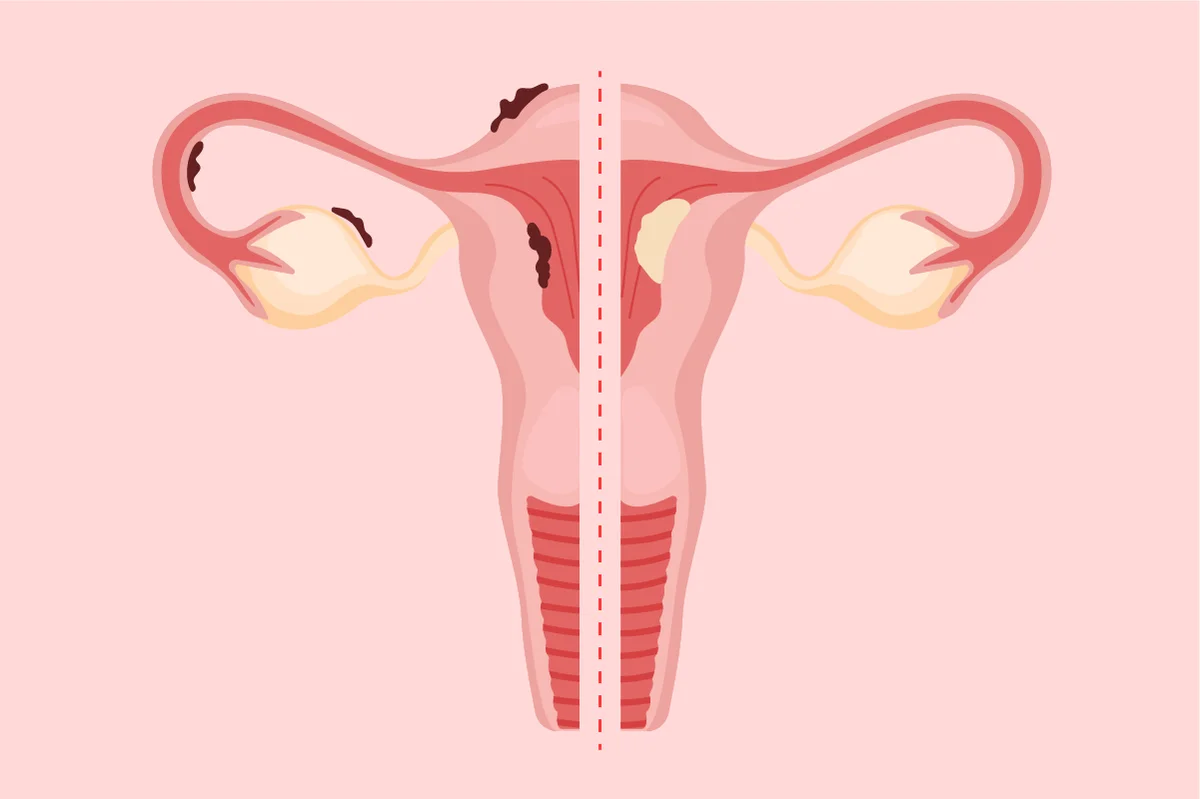Endometriosis and endometrial cancer (also called uterine cancer) can be hard to tell apart.
Both involve the inner lining of the uterus, called the endometrium. And both can cause heavy bleeding. But, they aren’t related to each other.
You may wonder:
- Is endometriosis a type of cancer? The answer is no. Endometriosis is when cells grow in places and ways that they shouldn’t. But it is not cancer.
- Can endometriosis cause endometrial cancer? No. Endometriosis does not cause endometrial cancer.
How can you tell if you have endometriosis or endometrial cancer?
Check out this chart to learn more about each condition.
What is it?
Endometriosis
When endometrial cells grow outside the uterus in parts of the body such as the bladder, bowels and intestines.
Endometrial/Uterine Cancer
Cancer that begins in the lining of the uterus.
Who is most at risk?
Endometriosis
Women may be at higher risk for endometriosis if they:
- Have a family history of endometriosis
- Started their before 11
- Have menstrual cycles(less than 27 days)
- Have heavy periods that last longer than 7 days
- Are infertile, have never given birth or had kids at an older age
Endometrial/Uterine Cancer
Women may be at higher risk for endometrial cancer if they:
- Have never gotten pregnant
- Have obesity
- Have PCOS (polycystic ovarian syndrome) or other conditions that raise estrogen levels
- Take hormone therapy
- Have a family history of certain cancers
- Are Black
What are the symptoms?
Endometriosis
- Severe cramps
- Pelvic pain
- Pain during sex and/or while peeing
- Heavy periods
Endometrial/Uterine Cancer
- Heavy bleeding
- Bleeding between periods
- Bleeding after menopause
When is it diagnosed?
Endometriosis
Typically diagnosed in 30s and 40s, though younger women with unexplained pelvic pain may also be diagnosed
Endometrial/Uterine Cancer
Typically diagnosed after menopause, but more women are being diagnosed younger
How is it diagnosed?
Endometriosis
- Surgery to confirm the presence of endometrial growths
- Positive response to medicine used to treat endometriosis
Endometrial/Uterine Cancer
- Pelvic exam
- Transvaginal ultrasound
- Hysteroscopy
- Biopsy (taking a sample of tissue from the uterus)
What are the treatments?
Endometriosis
- Pain medication
- Hormonal therapy
- Surgery
Endometrial/Uterine Cancer
- Hysterectomy (removal of the uterus)
- Chemotherapy
- Radiation
This resource was created with support from Merck.
- Why Getting an Endometriosis Diagnosis Is Painfully Slow ›
- Lifestyle and Dietary Changes for Endometriosis ›
- Fast Facts: What You Need to Know About Endometriosis ›
- Fast Facts: What You Need to Know About Endometrial Cancer ›
- Clinically Speaking: Questions to Ask Your HCP About Endometrial Cancer ›






